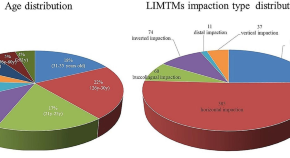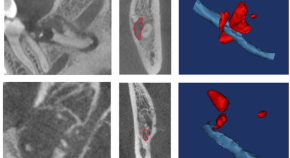Full life cycle changes of low impacted mandibular third molar associated cystic lesions and adjacent tooth root resorption: a retrospective study
Authors (first, second and last of 7)

Collection
DDS, Msc, PhD, University of Catania, Italy
MD, MS, PhD, University of Campania "Luigi Vanvitelli", Naples, Italy

